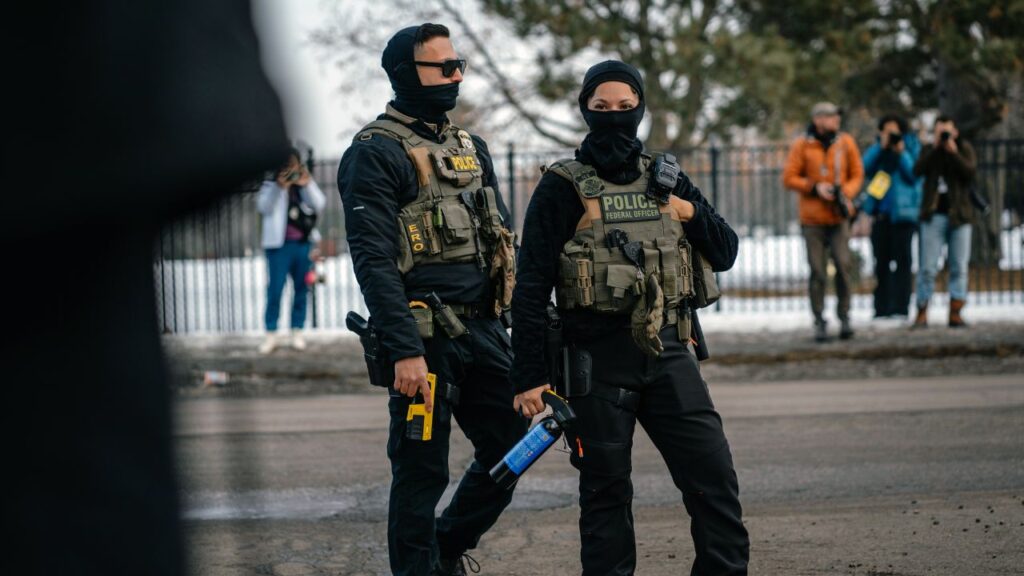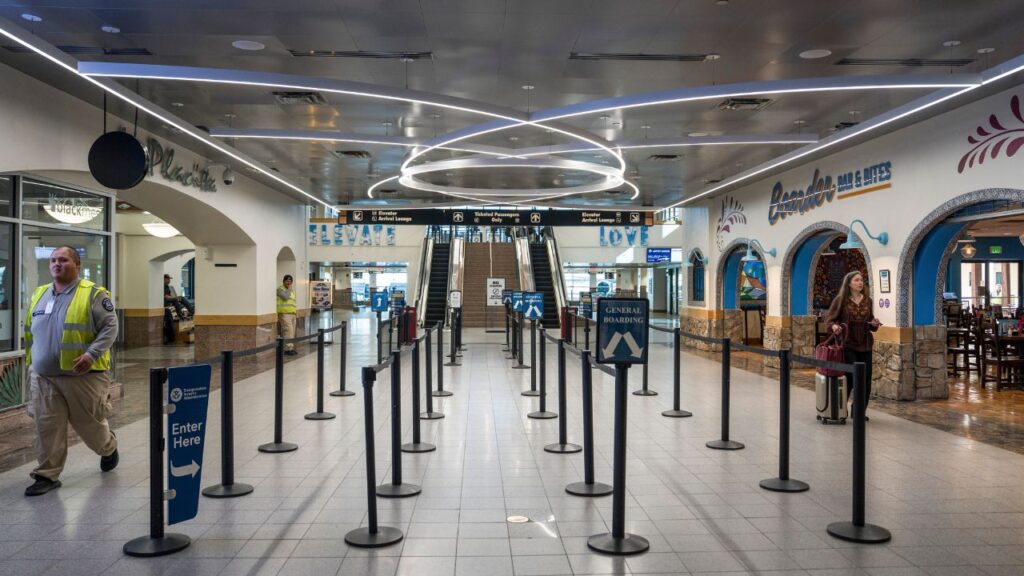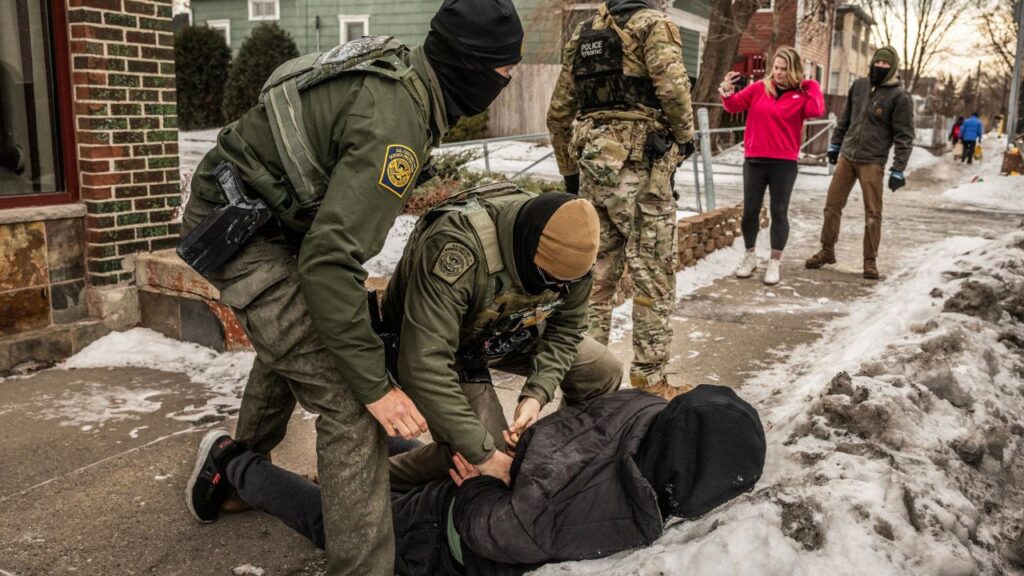Share
The National Governors Association says the availability of a future COVID-19 vaccine will likely be limited due to manufacturing constraints.
The NGA issued a memorandum Monday telling state leaders that difficult decisions concerning vaccine allocation and prioritization will occur.
Meanwhile, shortages of the antiviral drug remdesivir may give an early indication of how prioritization could work. Some states have shifted to a weighted lottery system to determine who does and does not get the potentially life-saving medication.
Remdesivir has shown promising results treating COVID-19 in laboratory studies but hasn’t been validated on a wide scale for patients.
Central Valley hospitals are running low on remdesivir as the state grapples with how much to send each county weekly.
Who might first get a COVID-19 vaccine?
U.S. public health officials on Friday charged a group of independent scientists and ethicists with developing guidelines to determine who should get the first doses of a COVID-19 vaccine, once one becomes available.
Community Medical Center
Lucky Malhi at Community Medical Centers says he’s been preparing for a COVID-19 surge since February. He says that surge is happening now.
“Currently we have enough remdesivir to treat about 30 patients after getting an emergency shipment last week and we are hoping for an additional delivery this week,” said Malhi, who is CMC’s vice president of supply chain management, in a statement.
As recently as a week and a half ago, Community Medical Centers went 24 hours without remdesivir until the emergency shipment arrived.
Malhi says as patient volumes continue to rise and stay at historic highs, the hospital is struggling with three main resources: staff, supplies, and beds.
CMC currently has 179 positive COVID-19 patients in their hospitals, and 119 CMC staff members either have the virus or are in self-isolation.
Kaweah Delta Medical Center
Laura Florez-McCusker, director of media relations for Kaweah Delta Medical Center, tells GV Wire℠ by email the hospital does have remdesivir and is expecting another shipment.
But, she said, “Our demand has consistently been greater than our allotted supplies of the medication and it is not uncommon for our supply to be depleted before the next allotted amount arrives.”
The hospital has 74 COVID-19 patients and 97 employees out with the virus.
Kaiser Permanente

“Thus far, the allocations we have received have not provided enough of the medication to all of our hospitalized patients who may benefit from it.” — Kaiser Permanente of Northern California
Kaiser Permanente of Northern California responded to GV Wire℠’s questions about remdesivir and allocations in an email response.
“In clinical trials, remdesivir has proven of some value in reducing length of hospitalization for people with COVID-19, and we wish there were more of it available for use in our hospitalized COVID-19 patients. With the number of confirmed cases of COVID-19 rising quickly in many states, the demand for remdesivir exceeds the supply available across all states,” said Kaiser Permanente of Northern California.
“The federal government is making remdesivir allocation decisions to states based on hospitalized COVID-19 census data. Each state then further allocates within its borders, and sends hospital allocation decisions to its contracted distributor, who in turn sends remdesivir to the selected hospitals. The current process is anticipated to provide distributions to allocated hospitals every two weeks.”
National Governors Association on Future COVID-19 Vaccine
“Immunizing the U.S. population against COVID-19 will likely require the single largest vaccination campaign ever undertaken and governors will play a key role in bringing together leaders from their state public health, immunization, and emergency management systems to design and execute the operation,” says the NGA.
The U.S. Department of Defense will assist with the vaccine’s distribution and administration.
The NGA also says, “Additionally, state leaders, in coordination with local health authorities, will also play a role in determining when to begin offering vaccines to persons outside the initial target groups, a decision made based on local situations.”
Will hospitals have a role in deciding the rollout of a vaccine?
“When we speculate about the distribution of a future vaccine, that distribution model would be determined by federal, state, and local authorities,” David Bacci, regional vice president of the Northern and Central California Hospital Council told GV Wire℠ by email.
“I see no indication that individual hospitals would determine the order in which to vaccinate people — they would vaccinate according to the regulations that would be developed.”
Can a Vaccine Win Over Skeptics?
The NGA is also concerned there may be some “vaccine hesitancy” by people with skepticism towards vaccines in general. The group urges a multifaceted communications strategy to address these concerns.
Recent polling cited by the NGA indicates that only half of Americans reported that they intended to get a COVID-19 vaccine, with 31% reporting that they were not sure if they would get vaccinated and 20% saying that they will refuse.
[covid-19-tracker]Remdesivir Supply Issues

Gilead Sciences, headquartered in Foster City, California said in a statement that the process of making remdesivir is complicated.
“The typical timeline for manufacturing a drug like remdesivir at scale is nine to 12 months; we have reduced that period to six to eight months,” the company explained.
The California Department of Public Health states on its website, “For each new (remdevisir) allotment received from the federal government, CDPH will use the most recent hospital data for patients with confirmed COVID-19 to proportionately distribute remdesivir …. .”
On June 8, CNN reported the federal supply of remdesivir would run out at the end of the month. Dr. Robert Kadlec, a U.S. Department of Health and Human Services official told the cable network that Gilead had given a “general range” of product delivery for July and August, which then “significantly expands beginning in September, October, and through the fall as they kind of open the spigot of their production and processing.”
Weighted Lottery System
The New York Times reports, one solution for a future COVID-19 vaccine that is starting to attract the attention of public health experts is a so-called weighted lottery, which gives everyone a chance at access, although some get a better shot than others.
Doctors and ethicists rank patients, deciding which groups should be given preference and how much. First-responders, for example, might be weighted more heavily than, say, very sick patients who are unlikely to recover.
The goal is to prevent the haphazard or inequitable distribution of a treatment or vaccine when there isn’t enough to go around. Such a system is being used to allocate remdesivir.
This is all very new,” said Dr. Douglas White, an ethicist and vice chairman of the department of critical medicine at the University of Pittsburgh, which began using a weighted lottery last month to distribute remdesivir.
Patients have accepted the results, even when they lost in the lottery and ended up being denied the drug, he said.
To allocate the drug, Pittsburgh doctors decided that the lottery would give preference to health care workers and emergency medical workers. The doctors also weighted the odds to favor people from economically disadvantaged areas, who tend to be mostly Black and Hispanic.
People with other illnesses and limited life spans, like end-stage cancer patients, had the odds weighted against them, giving them a smaller chance to win in the lottery. The system did not consider age, race, ethnicity, quality of life, ability to pay, or whether a patient has a disability.
The lottery began in early June. “We had 64 patients. We had to make the supply of remdesivir last at least two weeks. We only had enough to treat one in four patients,” White said.
(Reuters and the New York Times contributed to this story.)
Categories

Democrats’ Debate: ‘Abolish ICE,’ or ‘Abolish Trump’s ICE’?


















